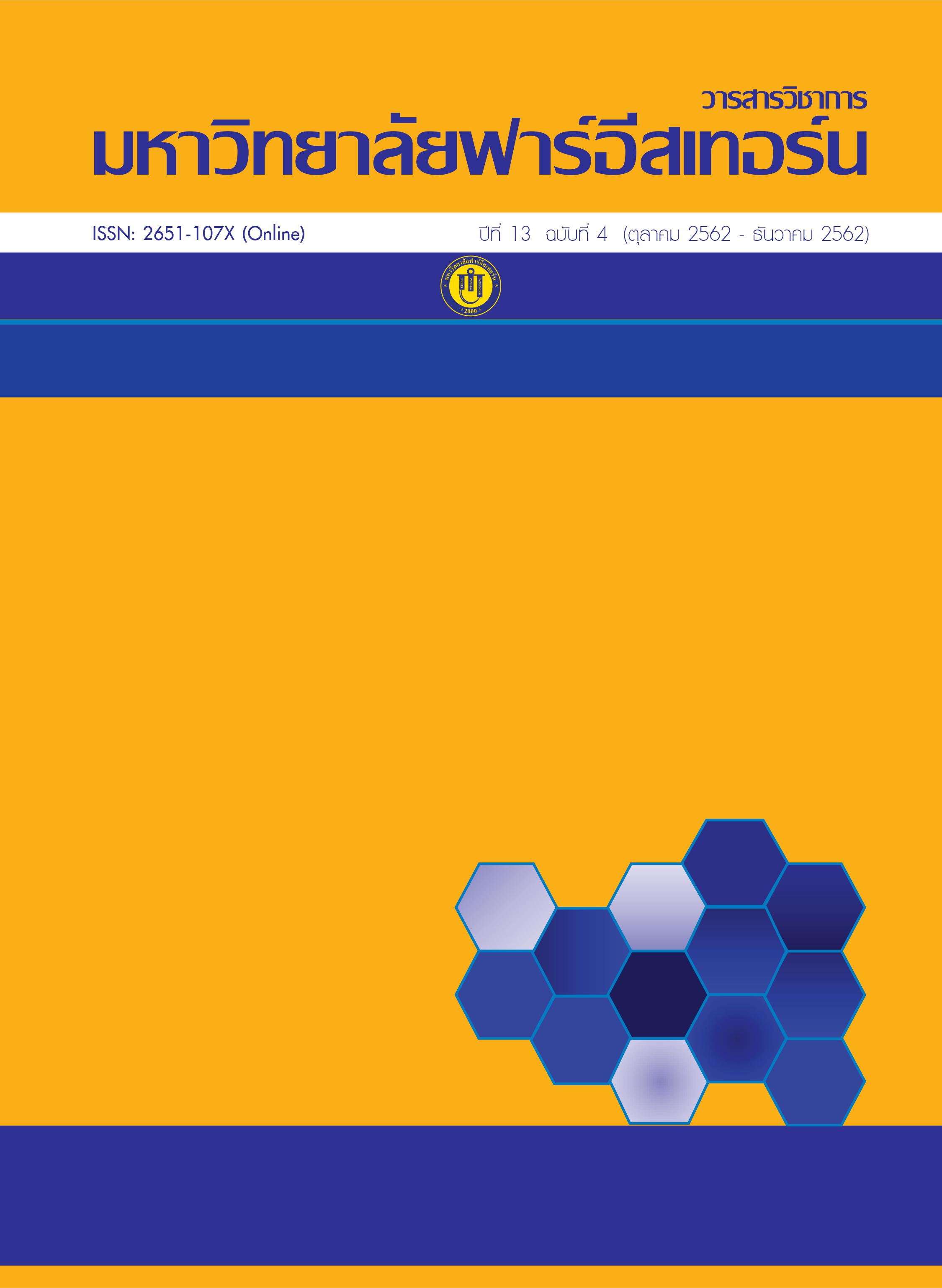The Effect of Using Outdoor Learning Activities on Improving English Communication Skills of Mathayom 1 Students, Bansara School, Tambon Donkaew, Amphur Maerim, Chiang Mai Province
Main Article Content
Abstract
This research aimed to compare the learning achievements of lower secondary students in the communication skills before and after implementing the outdoor learning activities and to explore the students’ satisfaction with the outdoor learning activities. The sample group of this study consisted of 74 students in lower secondary school at Ban Sala School in Tambon Donkaew, Amphur Maerim, Chiang Mai province. The research instruments were composed of 8 lesson plans using the outdoor learning activities, an English communicative skill test and the satisfaction questionnaire with a five-level rating scale measuring the students’satisfaction with the outdoor learning activities. The data were statistically analyzed by mean, standard deviation and t-test dependent. The results revealed that the learning achievement in English communicative skills after using the outdoor learning activities was statistically higher than before learning at the significance of 0.01 level and the students’ satisfaction was at the high level.
Article Details
1. Any views and comments in the Journal of Social Innovation and Lifelong Learning are the authors’ views. The editorial staff have not to agree with those views and it is not considered as the editorial’s responsibility.
2. The responsibility of content and draft check of each article belongs to each author. In case, there is any lawsuit about copyright infringement. It is considered as the authors’ sole responsibility.
3. The article copyright belonging to the authors and The Far Eastern University are copyrighted legally. Republication must be received direct permission from the authors and The Far Eastern University in written form.
References
Augwattanakul, S. (1997). English teaching method. Bangkok: Chulalongkorn University Press.
[in Thai]
Dowling, M. (2005). Young children’s personal, social and emotional development. London: Paul Chapman.
EF Education First. (2018). EF English Proficiency Index. Retrieved February 2, 2019, from https://www. ef.co.th/epi/.
Fagerstam, E. (2012). Perspectives on outdoor teaching and learning. Sweden: Linkoping University.
Fenton, M. G. (1996). Back to our roots in nature’s classroom. Young Children. 51(3), 8-11.
Gilberton, K. ; Bates, T. ; McLaughlin, T. & Ewert, A. (2006). Outdoor education methods and strategies. Champaign, IL: Human Kinetics.
Gunseli, Y. & Guzin, O. A. (2017). The effect of outdoor learning activities on the development of preschool children. South African Journal of Education. 37(2), 1-9.
Hammerman, D. R. ; Hammerman, W. M. & Hammerman, E. L. (1985). Teaching in the outdoors. Danville, IL: Interstate.
Hammerman, R. D. (1994). Teaching in outdoor. New York: Maryland.
Jitsathaporn, S. (1992). Field trip techniques. Songkha: Faculty of Education, Srinakharinwirot University. [in Thai]
John, L. & Ehow, C. (2011). Factors affecting quality of English language teaching and learning. Retrieved October 5, 2018, from https://www.ehow.com/info_8040040_factors-english-language-teaching-learning.html.
Lappin, E. (2000). Outdoor education for behavior disturbed students. Retrieved from ERIC Digest. (ERIC Identifier: ED261811).
Limtasiri, O. (2017). The Study of outdoor learning to enhance learnings skill in 21 Century. Veridian E-Journal, Silpakorn Univeristy. 10(3), 1643-1658. [in Thai]
Office of the Education Council. (2014). Ministry of education chart. Retrieved February 2, 2019, from https://www.moe.go.th/new_stru/images/pic_newstruc6.gif. [in Thai]
Parsons, A. (2011). Young children and nature: Outdoor play and development, experiences fostering environmental consciousness, and the implications on playground design. (Unpublished master thesis, Virginia Polytechnic Institute and State University).
Priest, S. (1990). The semantics of adventure education. In J. C. Miles & S. Priest (Eds). Adventure Programming. (pp. 111-115). State College, PA: Venture.
Saeidi, A. & Sulaiman, S. (2008). Attitudes and satisfaction of Mattayom 4-5 students in attain towards the English Camp Activities. Faculty of Humanities and Social Sciences Journal. 4(1), 2008. [in Thai]
Sharp, L. B. (1973). Basic consideration in outdoor and camping education. New York:
The Bulletin of The National Association of Secondary school Principals. Retrieved October 10, 2018, from https://journals.sagepub.com/doi/abs/10.1177/019263654 703114707.
Smith, J. (1955). Outdoor education and youth. Washington, DC: AAHPER.
Srikrai, P. S. (2008). Project-based learning in EFL classroom. Journal of Humanity and Sociology of Khonkaen university. 25(1), 53-79. [in Thai]
Swan, M. P. (1970). Trip and tricks in outdoor education. Illinois: The Interstates Printer & Publishers.
Vanitbuncha, K. (1997). The analysis of statistics: Statistics for making decisions. Bangkok: Thammasan Company.
Walberg, H. J. (1989). The effective teacher. New York: McGraw-Hill.
Watcharajinda, A. (2009). A study of management satisfaction and problems of the English program in schools under the Office of Education Inspector, Region 11, Thailand. (Master’s thesis, Applied Linguistics, Prince of Songkla University). [in Thai]
Wiengnil, A. (2010). A study of out-of-class English language learning activities of secondary school students in English Program. Bangkok: Chulalongkorn University. [in Thai]
Wiengnil, A. & Wasanasomsithi, P. (2008). A study of out-of-class English language learning activities of secondary school students in English program. Princess of Naradhiwas University Journal. 4(1), 72-83. [in Thai]
Wongsathian, N. (2000). Effects of formative assessment on motivation and learning outcomes of first year students at Wang Klai Kangwon Campus, Rajamangala Institute of Technology. (Master’s thesis, Master of Arts (Applied Linguistics), Graduate School, Mahidol University, Bangkok (Thailand)). [in Thai]

